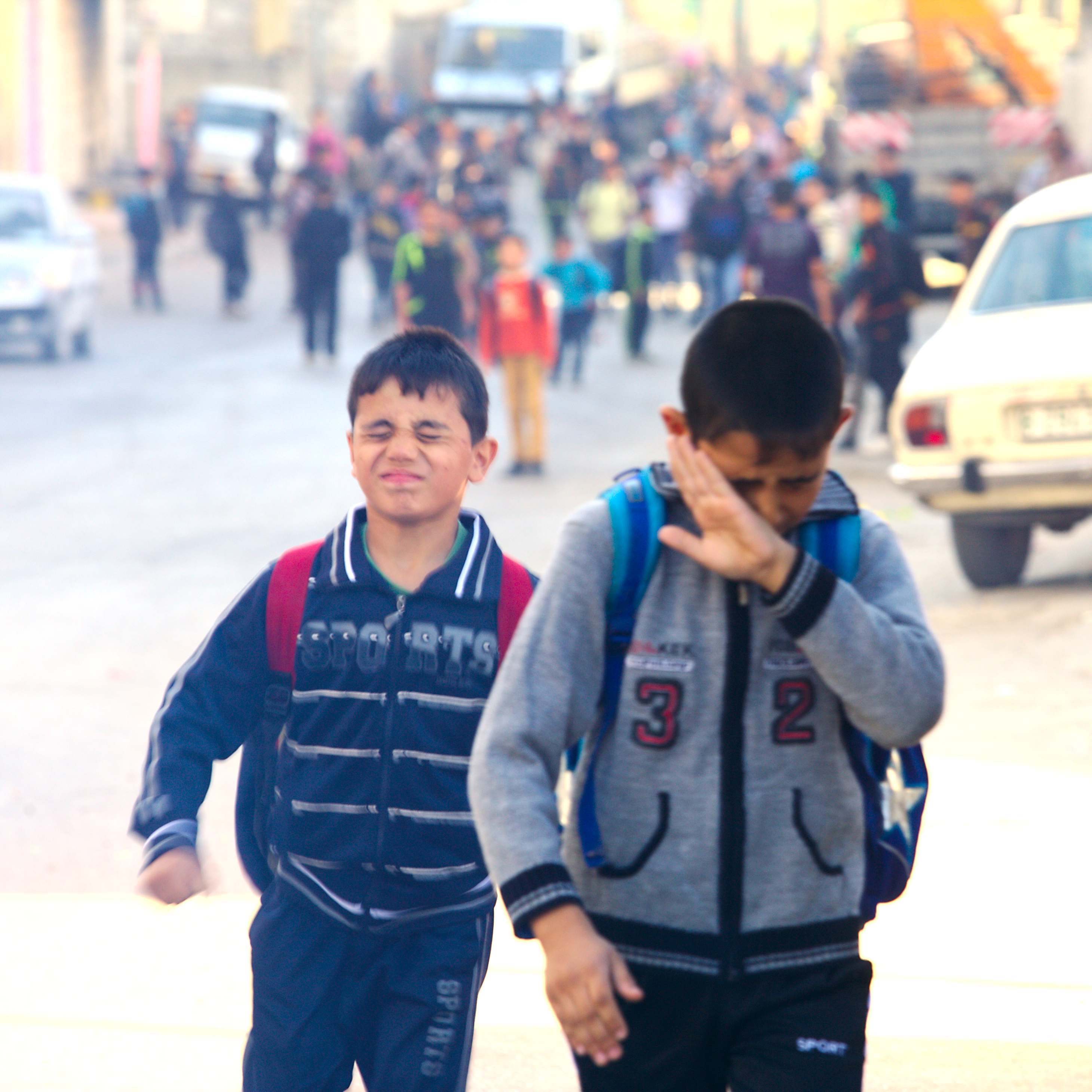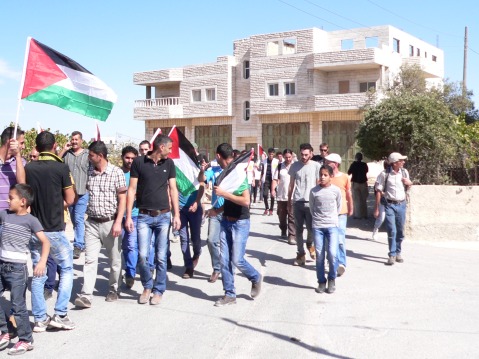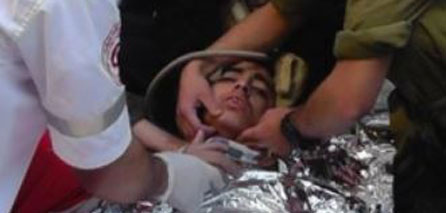Year: 2013
-
Tear gas in Hebron school leads to cancellation of classes
27th October 2013 | International Solidarity Movement, Khalil Team | Hebron, Occupied Palestine In the Israeli controlled H2 area in the center of Khalil (Hebron) children are used to tear gas canisters being fired after them before going to school. Usually the teaching is delayed for at least half an hour, as many children are…
-
Seven years of popular resistance in Al-Masara: ‘We want freedom, not aid money’
26th October 2013 | International Solidarity Movement, Khalil Team | Al Masara, Occupied Palestine Yesterday, Friday 25th October, over a hundred non-violent protesters, half of them internationals from more than a dozen countries all over the world marked the seventh anniversary of the popular struggle of the people of Al Masara against illegal Israeli settlements, most notably…
-
Palestinian boy beaten at checkpoint leads to clashes in Hebron
24th October 2013 | International Solidarity Movement, Khalil Team | Hebron, Occupied Palestine On Tuesday 22nd October in Khalil, a15-year-old Palestinian was beaten for not having identification (ID) that the Israeli government does not issue until the age of 16. At approximately 2:30pm on Tuesday, Mahmod from Tel Rumeida (not his real name) was attempting…



